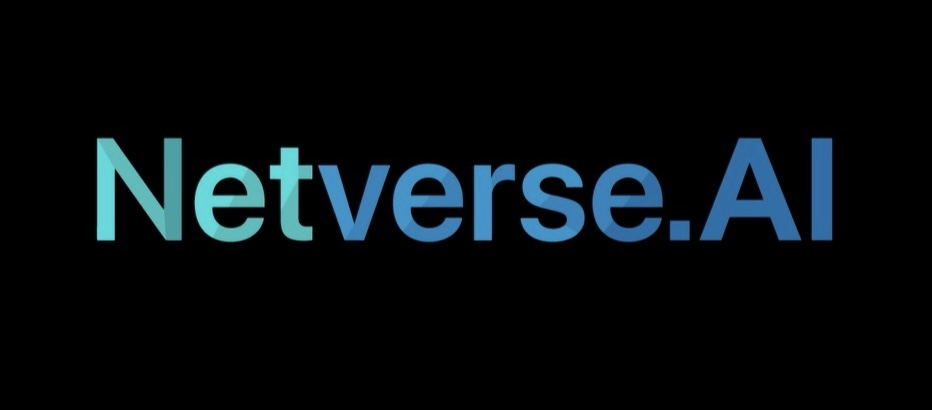Financial News
Cracking the Code of AGI: Phinge to Solve AGI With Netverse Patented, App-less Integrated Verified Platform & Technologies Through its Hardware
By:
PRLog
October 10, 2025 at 12:07 PM EDT
The digital world today is built on a fragmented model, with users juggling countless apps, logins, and disconnected services. Artificial intelligence (AI) is already integrated into many of these applications, but its capabilities are limited by this siloed, app-based architecture. In this context, the development of Artificial General Intelligence (AGI), which is a human-like, versatile form of AI, presents a profound challenge. Hundreds of billions of dollars is being invested to create the best AGI. "The issue cannot be solved in the current app-based world. In order for AGI to truly be transformative, it must be built on a foundation of verified individuals, businesses, entities, third-party platforms and their corresponding IP. Netverse will be that verified foundational technology and platform," says Phinge CEO Robert DeMaio.
Overview: App-based AI vs. Netverse App-less AGI
| Feature | Current app-based technology with AI | App-less AGI on Phinge Netverse |
| User Experience | Fragmented, inefficient, and requires juggling multiple disconnected apps, interfaces, and logins. | A streamlined, seamless, and centralized dashboard provides a unified experience and universal username. |
| Scope of Intelligence | Excels at specific, siloed tasks (e.g., a photo editor, a recommendation engine) and requires retraining for new domains. | Could learn and apply knowledge across multiple domains with human-like versatility. |
| Data and Ownership | User data is scattered across numerous platforms and monetized by tech companies. | All user-generated data is consolidated, user-controlled, and can be monetized by the user. |
| Security and Trust | Relies on reactive security measures, leaving data vulnerable across disparate platforms. | A proactive, hardware-verified ecosystem and centralized privacy controls offer a high level of security by authenticating all users. |
| Platform and Hardware | Relies on the existing duopolies of app stores and operating systems. | Accessible only through Phinge's own patented, proprietary mobile hardware, bypassing traditional app stores. |
| System Architecture | Software is built on disparate codebases for different apps, creating inefficiency and higher energy demands. | A patented, app-less, universal, and integrated codebase reduces code redundancy and resource needs. |
| Learning and Reasoning | Current AI can only make decisions and learn within the boundaries of its pre-programmed data patterns. | AGI could reason across domains, learn autonomously, and generate novel solutions without specific retraining. |
| Potential for Harm | Prone to widespread misuse, including bots, fake accounts, misinformation, and scams due to ease of account creation. | Hardware-verified users drastically reduce bot and fraud potential, creating a more trustworthy online environment. |
How Netverse app-less technologies will support a better AGI
- Integrated learning: Instead of learning within the walled garden of a single app, Netverse AGI will draw from a single, centralized data stream that represents a user's entire digital life. This would help create a more complete understanding of context.
- Reduced friction and energy: By streamlining processes and eliminating redundant app code, the app-less design will allow for more efficient data processing and AI calculations. This will make Netverse AGI more performant and energy-efficient.
- Enhanced trust: For AGI to be safe and widely adopted, user verification is critical. The Netverse's model of verifying every user via its patented hardware will provide a high level of trust that would be difficult to replicate in the anonymous environment of current app stores.
A fundamental difference in security architecture
The core difference lies Netverse's foundational design. The modern tech landscape is built on an open, fragmented ecosystem where new app installations expand the attack surface. In contrast, the Netverse's approach is to create a secure, verified environment from the outset, dramatically reducing the opportunity for many common threats.
| Security aspect | Today's app-based technology | Netverse's app-less technology |
| User and identity verification | Anonymous or easily faked accounts and identities are common, enabling bots, spam, and fraud. | All users are tied to a patented, hardware-verified Phinge device, making fake accounts, bots, and impersonation nearly impossible. |
| Data integrity | Personal data is scattered across countless apps and cloud services, with varying levels of security and risk of exposure. | A single, unified platform gives users control and ownership over their data, which is integrated and secured at the ecosystem level. The AGI would be trained on clean, verified data. |
| Threat surface | The need to protect each individual app, operating system, and cloud service creates a massive and expanding surface for attacks. | The app-less, integrated codebase and hardware-enforced ecosystem significantly reduces the overall attack surface and eliminate software-level vulnerabilities. |
| Mitigating misuse | It is difficult to curb the malicious use of AI to create misinformation, deepfakes, and scams due to the anonymous nature of the internet. | Because the platform is built on verified identities, its internal AI would be trained and governed using authenticated data, effectively curbing malicious deepfakes and the spread of unverified information. |
| Defensive model | Traditional cybersecurity relies on defensive software that reacts to new threats after they emerge. This leads to a constant arms race with attackers. | Netverse security is proactive, building trust and authentication into the foundation of the ecosystem through its patented hardware. By verifying all users and businesses, it diminishes the need for many traditional cybersecurity tools. |
The importance of verified identity and data
- Preventing adversarial attacks: In today's fragmented environment, AIs can be manipulated through "adversarial attacks," where malicious data inputs cause the AI to make errors. Netverse AGI operating in a hardware-verified ecosystem will be less vulnerable because its training and input data would be authenticated, reducing the risk of malicious poisoning or manipulation.
- Encouraging accountability: Netverse AGI will be a powerful tool, and accountability for its actions would be paramount. An ecosystem that ties every action to a verified identity allows for clear accountability for all users and businesses, which is a key pillar for developing trustworthy AI.
- Building trust: Transparency and trust are essential for trustworthy AI. By creating an environment where all participants are verified, Netverse will provide a strong foundation for building an AGI that users can trust because they know it is trained and operates on data from real, authenticated sources.
For a Netverse-based AGI, user data ownership will be facilitated by built-in permissions through a universal dashboard, shifting power from the platform to the individual. This model would be a radical departure from today's technologies, where user data is collected and used by platforms with minimal transparency and no compensation to the users. Netverse, users could decide exactly how much of their data the AGI can access, from what topics and purpose and for how much compensation.
Netverse universal dashboard for AGI user permissions
Instead of a single, all-or-nothing "I agree" button for a complex terms of service, a Netverse user will have a dedicated dashboard for their data, with significantly extensive granularity.
Key features of this user control panel could include:
- Granular consent toggles: The user may grant permission for different data categories on an opt-in basis. For example:
- Health and wellness data: Allow access to track fitness goals or provide personalized health recommendations.
- Financial data: Grant access for budgeting analysis or automated investment advice.
- Communication patterns: Permit analysis of communication frequency and topics to help manage relationships.
- Purpose-based permissions: Permissions can be tied to a specific use case. For instance, a user might agree to let the AGI use their location data to improve traffic predictions, but not for targeted advertising. This gives users a way to consent to beneficial uses of AI without relinquishing privacy.
- Time-limited access: The user could set a specific timeframe for which their data is accessible to the AGI. For example, they might give the AGI access to their calendar for one day to help plan a complex trip, and have that permission automatically expire afterward.
- Pseudonymization and anonymization options: Users could choose to allow the AGI to access anonymized or pseudonymized versions of their data. While the data might be less personalized for the user, it could still contribute to the overall model's training and improve the Netverse AGI for the public good without exposing personally identifiable information.
- Monetization controls: In Netverse where users can monetize their data, this dashboard will include settings for pricing, licensing, and sharing terms. Users may decide whether to license or sell their anonymized data to other companies for research or training, and at what price.
- Initial onboarding: When a user first sets up their Netverse account, they will be presented with a comprehensive yet understandable permissions dashboard. Instead of a dense legal document, a clear, visual interface would explain each data category and the implications of sharing it with Netverse AGI.
- Ongoing adjustments: The user would not be locked into their initial choices. At any time, they could revisit the permissions panel to modify settings, revoke access, or grant new permissions based on their evolving needs and trust level.
- Contextual consent requests: For new features or services, Netverse AGI would be required to explicitly ask for permission. For example, if the AGI wants to use a user's recent photo library to create a personalized photo album, a prompt would appear explaining what data is needed, where it is being shared and why.
- Hardware-enforced security: The entire permission system would be secured by the hardware-verified nature of Netverse. This means permission settings would be intrinsically tied to the user's verified identity, making them more secure than software-based permissions, which are vulnerable to spoofing.
Here are several ways Netverse users could be compensated for their data permissions.
Direct monetary compensation to users
- Data rewards: The most direct form of compensation is its rewards system. When a Netverse third-party platform or Netverse's own AGI wishes to use a user's data for a specific purpose, the user could receive a direct financial payment in same-as-cash rewards to be spent dollar-for-dollar across Netverse including all third-party platforms.
- Subscription discounts: Users could be offered a free or discounted subscription to premium services through Netverse third-party platforms in exchange for providing broader data permissions.
- Reputation incentives: A user's reputation could also be monetized. For example, a user with a long history of providing high-quality, verified data might earn a higher reputation score, which could lead to better compensation for future data-sharing permissions or exclusive access to new features.
- Transparency and control: The Netverse user dashboard will make all transactions transparent, clearly showing users what data is being shared, with whom, for what purpose, and what compensation is being received. This transparency is key to building user trust.
Impact of user-controlled permissions on Netverse AGI development.
Netverse's model of user-permissible, partial, or total data access would have a profound impact on the development and nature of its AGI becoming the world's most verifiable, transparent and reliable.
- A more ethical AGI: By building Netverse AGI on a foundation of user consent, Phinge will be inherently more ethical and trustworthy. This transparent approach would help to mitigate the privacy and data-control concerns that plague today's AI systems.
- Diverse and high-quality data: Because users would have control of their data, they might be more willing to share high-quality, truthful data, knowing they are in charge of how it's used. This could lead to a more robust and less biased Netverse AGI than today's AIs that are being trained on potentially scraped or low-quality or unverified public data.
- A different training paradigm: Netverse AGI will also be trained on a mix of fully anonymized public data from the current web and consented, verified user-provided data from Netverse. Netverse AGI would learn to differentiate between these data types and respect the permissions associated with them, leading to a more privacy-aware architecture.
- Dynamic, adaptive real-time AGI: Netverse AGI will adapt to changes in user permissions in real-time, learning how to operate with varying levels of data granularity.
Preview Netverse and its patented, magnetically attachable devices at
https://www.phinge.com
View Phinge's Crunchbase profile
https://www.crunchbase.com/organization/phinge
View Robert DeMaio's Crunchbase profile
https://www.crunchbase.com/person/robert-charles-demaio
Photos: (Click photo to enlarge)




Source: Phinge Corporation
Read Full Story - Cracking the Code of AGI: Phinge to Solve AGI With Netverse Patented, App-less Integrated Verified Platform & Technologies Through its Hardware | More news from this source
Press release distribution by PRLog
More News
View More
Warner Bros. Sale Rumors Heat Up: What Investors Need to Know ↗
Today 18:23 EST
Via MarketBeat

From Science Project to Solvent: WeRide’s 761% Revenue Surge ↗
Today 17:48 EST
Via MarketBeat


Via MarketBeat

Recent Quotes
View More
Stock Quote API & Stock News API supplied by www.cloudquote.io
Quotes delayed at least 20 minutes.
By accessing this page, you agree to the Privacy Policy and Terms Of Service.
Quotes delayed at least 20 minutes.
By accessing this page, you agree to the Privacy Policy and Terms Of Service.
© 2025 FinancialContent. All rights reserved.



